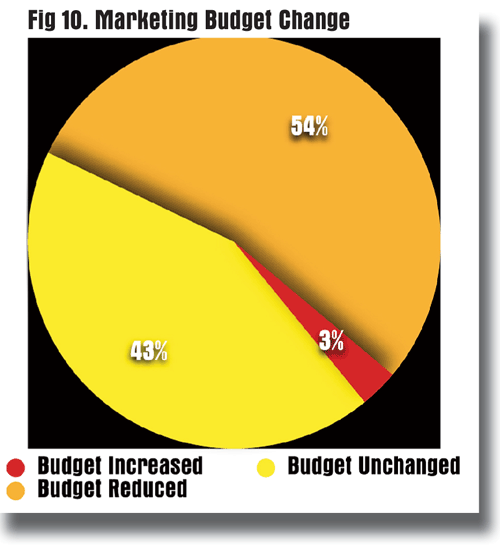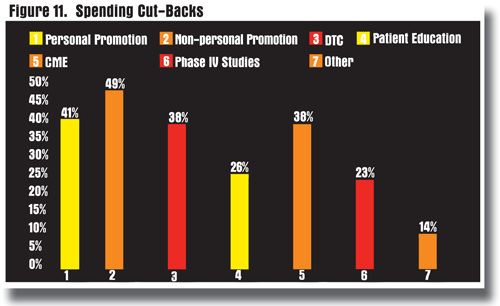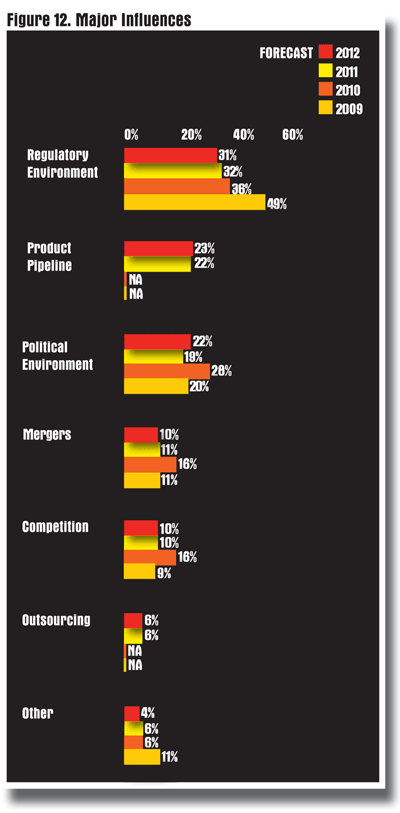Expanded reporting requirements, especially the Sunshine Act, will accelerate the migration away from product-driven strategies and towards market-driven and evidenced-based approaches, changing the role of the key opinion leader.
Historically, biological, pharmaceutical and medical device firms marketed products to health care providers by providing clinical information as well as a variety of promotional marketing programs—including such incentives as free meals, free trips, free CME, free office supplies, honoraria, speaker fees, paid consulting agreements, etc., (considered collectively as remuneration). Undisclosed paid endorsements of firm products by key opinion leader (KOL) physicians at academic research institutions arguably resulted in inefficient utilization of products, with concomitant financial and/clinical harms to payers and patients.1 By making such remuneration “transparent”, regulators will be able to identify and prosecute abusive or illegal remuneration practices by firms, and academic KOLs2 will arguably be more likely to abide by applicable conflict of interest policies.3
In the late 1950s “payola” scandal, leading radio station DJs secretly accepted payments from record labels to promote particular artists and boost retail sales. Legally, such remuneration needed to be disclosed as a paid advertisement. Likewise, the long-standing firm practice of remunerating KOL physicians to assist in marketing products to other physicians is alleged to have harmed the public welfare by skewing clinical demand for firm products without sufficient regard for the relative safety, clinical efficacy and cost of the product due to the non-disclosure of the KOL’s paid endorsement.
While the Physician Payments Federal Sunshine Act (Sunshine Act)4 does not per se prohibit firm remuneration to academic medical centers and medical schools, the operation of the law will have that de facto impact. Nearly all academic medical institutions and medical schools have strict conflict-of-interest policies. In the past, enforcement has been laissez faire. In the new environment, this will likely end, as universities and healthcare institutions find a clear window on their faculties’ paid honoraria, consulting engagements, lectures and endorsements. 5 Nobody knows whether opprobrium ensuing from Sunshine Act disclosures will drive talented researchers and teachers away from medical academia in order to continue their commercial collaborations, but the Sunshine Act may have a chilling effect on continued partnerships between firms and physicians at the medical schools that have produced so many discoveries and innovative therapies.6
As academic KOL physicians’ willingness and ability to collaborate with firms diminishes, manufacturers may wish to embrace new marketing paradigms—such as disease-centric product offerings that enhance product value propositions for physicians, patients and payers by offering bundles of products and services to improve patient health and outcomes.7 Firms may also wish to compile peer-reviewed literature and comparative-effectiveness research in drug monograph formats, for use with pharmacy and therapeutics committees.8 Early collaboration with government and commercial payers, disease-advocacy groups and KOLs will be essential in establishing the pharmacoeconomic business case for early adoption of the new products.9
An evidence-based and patient-centric product strategy shifts the focus from product-driven to market- or evidence-based models. These segment product strategy, breaking it down to a more granular level. The approach measures, and delivers value to, specific pools of patients based on inefficient utilization of resources or gaps in care (see, for example, the studies of John Wennberg and others at Dartmouth).10 Executing such a “personalized medicine” strategy requires nimbleness and detailed understanding of patient and provider needs.
KOL-driven marketing strategies will likely yield to approaches that focus on identifying underserved patient populations with manifest clinical need for products with demonstrable outcomes. Preferred-drug lists and pharmacy and therapeutic committees rationalized and commoditized branded drug coverage for Medicaid State Supplemental Rebate Programs. So, too, may evidence-based medicine and Accountable Care Organizations seek to commoditize and rationalize prescriber decision-making on selection and utilization of biologicals, pharmaceuticals and medical devices.
The halo effect in the new marketing paradigm will come not from having renowned academics present a firm’s PowerPoint deck to auditoriums of doctors, but rather from research demonstrating improved patient outcomes and avoided costs, associated with improved patient compliance, compliance that delays or reverses disease progression and acuity. Successful companies will (pursuant to evolving FDA and FTC guidance) use social media to disseminate such studies to assure that affected prescribers, patients and social-media KOLs are aware of opportunities to improve outcomes. Of course, when products are bundled together with medical foods, nutritional counseling, disease-management programs and case-management services, patient adherence increases and outcomes improve: so successful firms will be those that bundle their products to leverage such opportunities.



REFERENCES
1. Kuehn, Bridget Payments to Physicians, Medical Schools to be Illuminated Under Reform Law, JAMA, June 9, 2010, Vol 302, No, 22 P. 2237
2. Generally a key opinion leader (“KOL”) is a respected and widely known physician with particular expertise within the clinical space wherein the firm’s product is utilized who delivers paid lectures extolling the merits of products to other physicians. See Kuehn, Bridget Payments to Physicians, Medical Schools to be Illuminated Under Reform Law, JAMA, June 9, 2010, Vol 302, No, 22 P. 2237
3. Arguably, Federal and State “Aggregate Spend” laws result in the imposition of Corporate Integrity Agreement-style infrastructure and compliance requirements upon all life sciences firms. The maintenance of sufficiently robust compliance infrastructure, programs and documentation is therefore essential for firms. Non-compliant firms may be “disclosed” by self-appointed public watch dog interest groups (e.g., ProPublica http://projects.propublica.org/docdollars/ and Tax Payers Against Fraud http://www.taf.org/).
4. See Patient Protection and Affordable Care Act, Pub. L. No. 111-148, § 6002, 124 Stat. 119, 689 (codified as amended at 42 U.S.C. § 1320a-7h) (amending Part A of title XI of the Social Security Act by adding section 1128G) (2010). See sidebar.
5. See Med Schools Flunk at Keeping Faculty Off of Pharma Speaking Circuit http://www.propublica.org/article/medical-schoolspolicies- on-faculty-and-drug-company-speaking-circuit/single
6. Firms often rely on KOLs to administer clinical trials and the disclosure requirements and conflict of ethics rules in place at many academic institutions may operate to lessen physician participation in such important studies and result in delayed FDA product approvals. Disclosure laws as written will do little to prevent alleged past abuses wherein firms were alleged to have quashed the publication of clinical research demonstrating questionable efficacy and significant safety concerns with products in order to maintain market share and profits. However, regulators would in theory be able to mine clinical research payments and then attempt to track down findings to perhaps determine if firms withheld adverse research findings associated with drug efficacy and safety from the FDA.
7.See http://eon.businesswire.com/news/eon/20110629005199/ en/alliance-life-sciences-consulting-group/alscg/ACO
8. Pharmacy and Therapeutics Committees typically commoditize therapeutically equivalent products into market baskets and benchmark relative efficacy, safety and cost to support the inclusion or exclusion of the product from preferred drug list/formulary status.
9. See http://www.healthforum.com/healthforum/html/ conferences/11Summit/files/EconomicandClinicalValueasMarketingStrategy.pdf
10. See http://www.dartmouthatlas.org/ and see http://circoutcomes. ahajournals.org/content/4/1/114.abstract in regard to disparate utilization of medical devices and see http://content. healthaffairs.org/content/29/5/982.abstract in regard to the implementation of Accountable Care Organizations.





